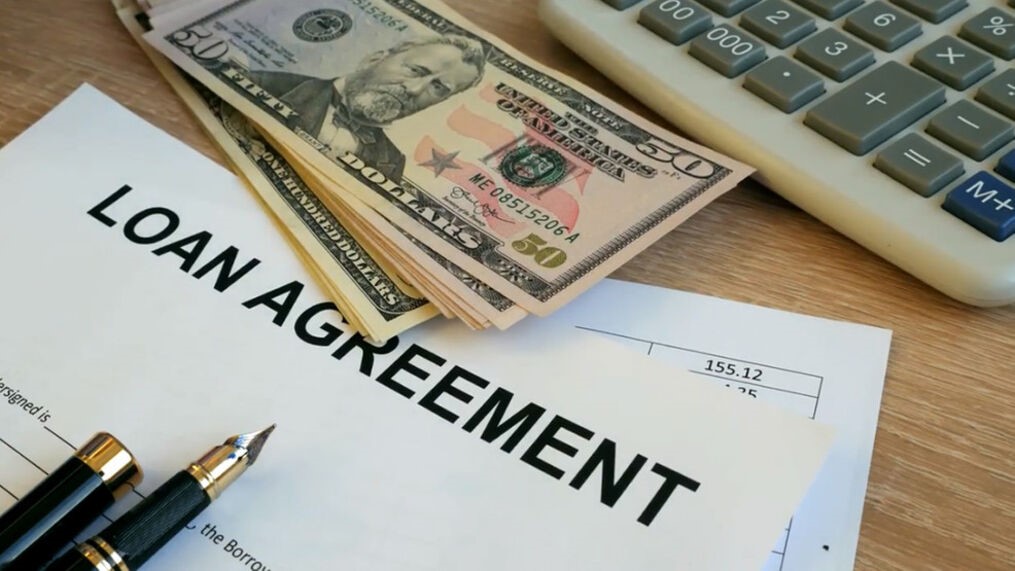
You should know that personal loans can offer you an affordable alternative to credit cardshttps://www.canadiensstore.com especially for making large purchases. At the same timehttps://www.canadiensstore.com personal loans are becoming more popularhttps://www.canadiensstore.com while todayhttps://www.canadiensstore.com more than twenty million borrowers are in the US alone.
It is crucial to have a repayment strategyhttps://www.canadiensstore.com whether you wish to consolidate debthttps://www.canadiensstore.com finance home improvementhttps://www.canadiensstore.com or use it for emergency expenses. It does not matter why you need it because you should understand the questions to ask yourself to ensure that you can handle the expenses and monthly installments.
How Much Money Do You Need?

The initial step you should consider when getting a personal loan is the amount you should get in the first place. The lowest options start at five hundred dollarshttps://www.canadiensstore.com while some lenders will require minimum thousand dollars. We recommend you avoid getting a loan for less than five hundred dollars.
Insteadhttps://www.canadiensstore.com it would be best if you tried to save as much as possible or borrow from your family member or friend to avoid significant interest rates. The worst thing you can do is take a payday loan.
Should You Consolidate Debt Immediately or Do It Yourself?
As soon as you decide to get a personal loan for consolidating debt from credit cards and other loans with significant interest rateshttps://www.canadiensstore.com it would be best to determine whether the amount will immediately pay each debt or if you wish to do it yourself.
Some lenders have options to send funds directly to your creditorshttps://www.canadiensstore.com meaning you can avoid taking money and paying everything yourself. Of coursehttps://www.canadiensstore.com some people prefer a hands-on approach when getting money and paying a specific debt. Thereforehttps://www.canadiensstore.com you can choose money to enter your checking account.
How Much Will You Pay?

The main idea is that you must start paying the loan in monthly installments thirty days after receiving funds. Thereforehttps://www.canadiensstore.com you can choose the term based on your preferenceshttps://www.canadiensstore.com which can go between six months and seven years. The longer your term ishttps://www.canadiensstore.com the lower the monthly installmenthttps://www.canadiensstore.com but you will end up paying more than you borrowed due to interest rate.
On the other handhttps://www.canadiensstore.com choosing a short-term option comes with higher monthly expenses and lower interest rates. Everything depends on your preferences.
Regarding interest ratehttps://www.canadiensstore.com you should know that the percentage depends on numerous factorshttps://www.canadiensstore.com including loan amounthttps://www.canadiensstore.com termhttps://www.canadiensstore.com and credit score. They can start from seven percent to thirty percenthttps://www.canadiensstore.com depending on your creditworthiness.
Only people with excellent scores can get the lowest interest rates possiblehttps://www.canadiensstore.com or you can choose the shortest repayment termhttps://www.canadiensstore.com which will ultimately provide you with a lower rate than long-term options.
According to Federal Reserveshttps://www.canadiensstore.com the average APR for two-year personal loans is ten percent. This is way better than credit cardshttps://www.canadiensstore.com with at least twenty percent of the annual percentage rate. In almost all situationshttps://www.canadiensstore.com you will get a fixed ratehttps://www.canadiensstore.com meaning it will not change and affect monthly installments throughout the loan’s life.
Can You Afford the Monthly Installment?
As soon as you apply for a personal loanhttps://www.canadiensstore.com you can choose the best repayment plan based on your financial situationhttps://www.canadiensstore.com cash flowhttps://www.canadiensstore.com and overall income. Lenders may offer you incentives if you choose an autopay optionhttps://www.canadiensstore.com which will automatically handle monthly payments. Incentives can lower your APR by 0.5{21874518d9ba8ca804216a00bea648fae669ca3dd5198e971fdbe81260549f10}https://www.canadiensstore.com which will help you save money.
Some people prefer to reduce the monthly payments to a minimumhttps://www.canadiensstore.com meaning they should increase the overall term and prolong the payment for a few years. Others wish to pay everything off as soon as possiblehttps://www.canadiensstore.com meaning they will choose higher monthly installments in the short term.
Similarlyhttps://www.canadiensstore.com as mentioned abovehttps://www.canadiensstore.com long repayment terms and low monthly payments will feature the highest interest rate. Although it may not seem like ithttps://www.canadiensstore.com you will pay more than you borrowed.
According to a rulehttps://www.canadiensstore.com you should avoid spending more than forty-five percent of gross monthly income on debthttps://www.canadiensstore.com including other things such as billshttps://www.canadiensstore.com carshttps://www.canadiensstore.com mortgageshttps://www.canadiensstore.com and personal loans. Thereforehttps://www.canadiensstore.com if your pay is four thousand dollarshttps://www.canadiensstore.com your overall debt should not surpass a thousand and seven hundred dollars each month.
Lending institutions will deny loans to people with a significant debt-to-income ratiohttps://www.canadiensstore.com meaning the amount spent on debt compared with gross monthly income. The percentage can go up to forty-five in a worst-case scenariohttps://www.canadiensstore.com while lower options will provide peace of mind.
Although you may think that you can handle significant payments to save interesthttps://www.canadiensstore.com it is way better to stretch the loan (Thewebmagazine.org – lån på dagen) and avoid significant expenses. Besideshttps://www.canadiensstore.com lenders will not approve you when you jump forty percenthttps://www.canadiensstore.com or they will offer you unwanted terms and rates.
Should You Pay Additional Fees?

You should know that lenders can charge you originationhttps://www.canadiensstore.com sign-uphttps://www.canadiensstore.com and closing feeshttps://www.canadiensstore.com while others will only require you to pay interest. An origination fee is a one-time charge that your lender will take from your loan to handle processing and administration expenses.
It goes between one and five percent of the outstanding balancehttps://www.canadiensstore.com but in some caseshttps://www.canadiensstore.com you will end up with a flat fee. For instancehttps://www.canadiensstore.com when you take ten thousand dollars with a five percent origination feehttps://www.canadiensstore.com you will receive $9https://www.canadiensstore.com500https://www.canadiensstore.com while the five hundred will return to the lender for the expenses.
Do You Have a Proper Credit Score?
Before you start with anythinghttps://www.canadiensstore.com you should understand your credit score and check out the report. That wayhttps://www.canadiensstore.com you can see whether you can qualify or not. Remember that most lenders are searching for people who have good scoreshttps://www.canadiensstore.com mainly because they do not require collateral as protection.
Of coursehttps://www.canadiensstore.com if you have an ongoing relationship with a bankhttps://www.canadiensstore.com you will get a favorable deal based on the history of dealing with past loans and bills. In some situationshttps://www.canadiensstore.com credit unions will offer you lower interest rates on personal loanshttps://www.canadiensstore.com especially if you have an average score. Howeverhttps://www.canadiensstore.com before qualifyinghttps://www.canadiensstore.com you must become a member and open a savings account.
On the other handhttps://www.canadiensstore.com you can find lenders for people with bad credithttps://www.canadiensstore.com especially onlinehttps://www.canadiensstore.com but you should be aware of potential frauds that may happen. That is why you should research before making up your mind.
Final Word
Choosing a zero-percent balance transfer credit card comes with the same efficiency as personal loans. Stillhttps://www.canadiensstore.com you will get a lump sum you can use for numerous expenseshttps://www.canadiensstore.com apart from consolidating debthttps://www.canadiensstore.com which is vital to remember.
Stillhttps://www.canadiensstore.com it would be best to determine whether you can get the amount you need for home remodelinghttps://www.canadiensstore.com moving interstatehttps://www.canadiensstore.com or emergency expenses. Everything depends on your credit scorehttps://www.canadiensstore.com which you can check out for free without hurting your score through hard inquiry.
Whatever you decidehttps://www.canadiensstore.com you should know that credit cards come with higher APRshttps://www.canadiensstore.com meaning once you fail to pay everything on timehttps://www.canadiensstore.com you will incur significant expenses.
Generallyhttps://www.canadiensstore.com you must be a cautious spender when using cardshttps://www.canadiensstore.com and you can boost your score to obtain higher amounts and better loans. Credit cards are perfect for boosting your credit historyhttps://www.canadiensstore.com mainly because no one will lend a personal loan to someone who just started working without a good score as a backup.
Of coursehttps://www.canadiensstore.com you can choose a secured personal loanhttps://www.canadiensstore.com meaning you can use your savings account as collateralhttps://www.canadiensstore.com ensuring you get a lower interest rate and better terms altogether.